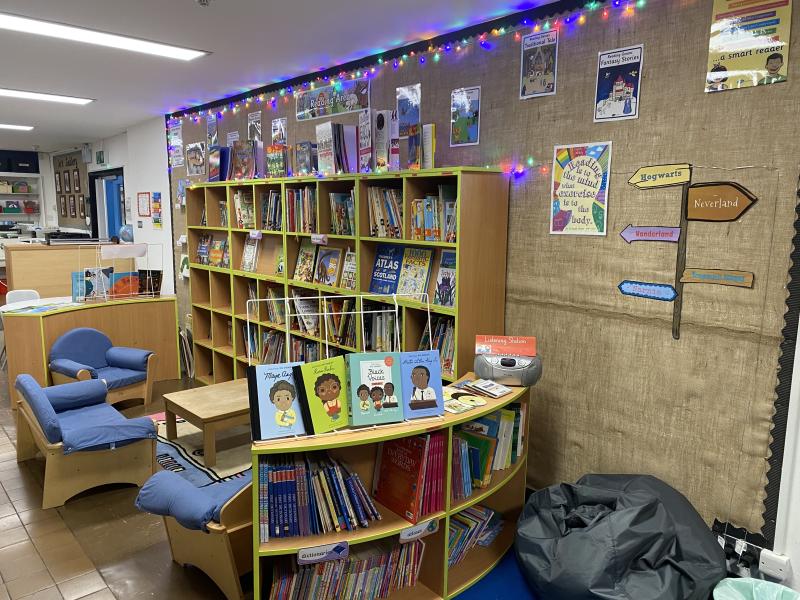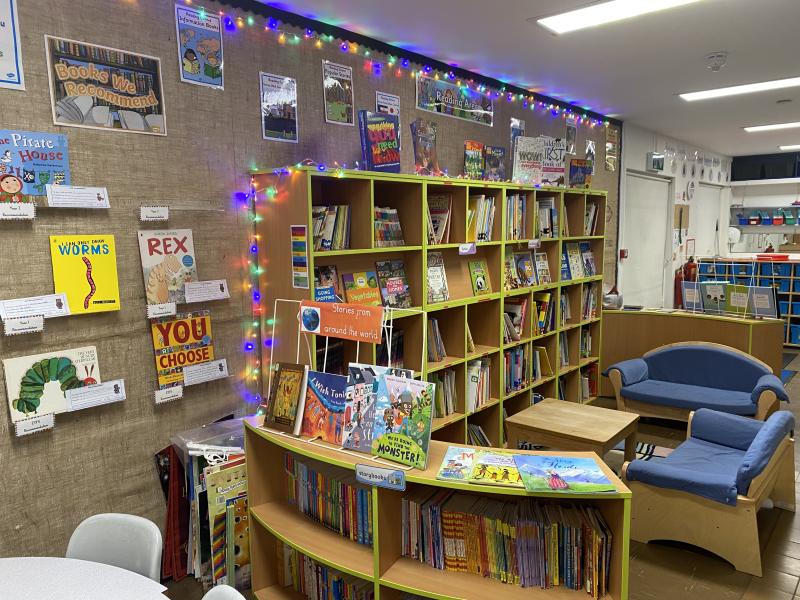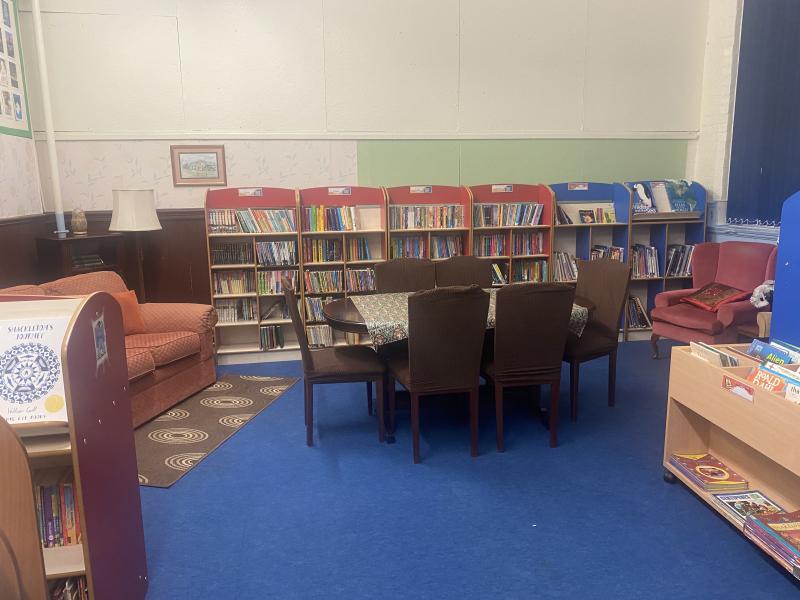This page contains downloadable documents, please scroll down to reach them
Religious Education (RE) is taught as a discrete subject taught to all children except those who are taken out by their parents. We have adopted 'Kapow’s Primary Religion and Worldviews' curriculum in order to develop children’s understanding of key concepts and make connections between different religions and cultures. RE is taught weekly in school and all units begin with an attention grabber in order to enthuse and engage the pupils before deepening their understanding of key concepts. Children are given the opportunity to make connections, ask questions and develop curiosity within their learning, through the enquiry approach. The units cover a variety of world religions including Christianity, Judaism, Hinduism, Islam, Buddhism and Humanism.
The aim of our RE curriculum is to develop tolerant, analytical thinkers who make connections between different worldviews and religions. Each of the units will include an enquiry approach which allows children to respond, articulate and respect each other’s views through taught concepts. Key questions will develop and build on prior knowledge, further deepening children’s knowledge of concepts across different religions.
As a Theologists children are given the opportunity to:
- Observe religious practices.
- Read case studies.
- Interpret images
- Question others
- Analyse texts
- Explore Religious artefacts and buildings.
Our intention is that when our children leave in Year 6, they are able to talk confidently about different religions, the things that are important to these religions and their beliefs. They understand why many of the major festivals are celebrated. They are able to talk about their own beliefs and understand that, although we do not always share the same beliefs as others, all beliefs are valued and important.
RE Curriculum Files
| Title | Download |
|---|---|
| RE Long Term Plan | Download |
This page contains downloadable documents, please scroll down to reach them
We follow the PSHE scheme called 'JIGSAW'. JIGSAW brings together PSHE Education, emotional literacy, social skills and spiritual development in a comprehensive scheme of learning. Teaching strategies are varied and are mindful of preferred learning styles and the need for differentiation. JIGSAW is designed as a whole school approach, with all year groups working on the same theme (Puzzle) at the same time. This enables each theme to start with an introductory assembly, generating a whole school focus for adults and children alike. The whole scheme is designed with six themes (Puzzles) for six half terms.
Each Puzzle has six lessons (Pieces) which work towards an ‘end product’, for example The School Learning Charter or The Garden of Dreams and Goals. Each lesson has two ‘Learning Intentions’: one is based on specific PSHE learning (covering the non-statutory national framework for PSHE Education but enhanced to address children’s needs today); and one is based on emotional literacy and social skills (covering the SEAL learning intentions but also enhanced). The enhancements mean that JIGSAW is relevant to children living in today’s world as it helps them understand and be equipped to cope with issues like body image, cyber bullying and internet safety. An element of SMSC (Spiritual, Moral, Social, Cultural) development is incorporated in every lesson and contributes to these aspects of children’s development. This is mapped on each lesson and balanced across each year group.
As 'Emotionally Intelligent People' we learn to:
- Understand being me in my world
- Celebrate differences
- Understand the importance of dreams and goals
- Know, and understand, how to keep ourselves healthy
- Understand what makes a healthy relationship
Each year the children become more skilled in these concepts, building upon their prior knowledge and understanding. Our intention is that when they leave in Year 6, our children value themselves as individuals, will have learned to celebrate cultural and personal differences, will recognise their own achievements and their impact upon the wider world, have an understanding of the impact of the world around them, and will be able to manage their feelings and understand and reflect on their ever-changing selves.
RSE
We also use the Relationships and Sex Education content from the Jigsaw Scheme to teach RSE in the Summer Term. Information regarding the content of these session is shared with parents and they are invited to attend an information evening before it is taught. See further information below.
PSHE & RSE Curriculum Files
SMSC and Emotional Literacy
Our PSHE curriculum also through the Jigsaw Scheme also provides a structured programme of personal development to nurture the ‘whole child’ and increase learning capacity, underpinned by mindfulness philosophy and practice. Every Jigsaw lesson offers opportunities for children’s spiritual, moral, social and cultural (SMSC) development, and this is clearly mapped and balanced across each year group. Likewise, Jigsaw is designed to provide structured opportunities in every lesson to practise and enhance the five skills associated with the emotional literacy (self-awareness, social skills, empathy, motivation and managing feelings).These opportunities are vital for children’s development, their understanding of themselves and others and in increasing their capacity to learn.
Protected Characteristics
It is important that all children have an understanding of the world they are growing up in, having learned how to live alongside, and show respect for, a diverse range of people. As part of our PSHE curriciulum that uses the Jigsaw Scheme, the children are taught the Puzzle 'Celebrating Difference' which focuses on similarities and differences and teaches about diversity such as racism, gender, family composition, friendships and conflicts. Children learn to accept everyone's right to 'difference' and most year groups explore the concept of 'normal'. The 'Relationships' Puzzle also has a wide focus, looking at diverse topics such as families, friendships, equality in relationships, and love and loss - important messages behind the Equality Act.
This page contains downloadable documents, please scroll down to reach them
We follow the National Curriculum Programme of Study for Physical Education (PE) and build up the areas of gymnastics, dance, swimming, athletics and outdoor and adventurous activities. As a school we use the 'GetSet4PE' scheme of work which develops the whole child and allows pupils to work on the fundamental skills as well as developing the social, emotional and thinking concepts needed to be successful in PE. These concepts are further developed through a range of sports to apply them in a variety of engaging situations. PE is taught twice a week for two hours by the class teacher and supported by a specialist sports coach.
Children also take part in inter-school competitions through our own cluster and district sporting competitions. Intra-school competitions are delivered by our Sports Crew and Sports Coaches at lunch times, as well as in lessons, and as part of our own house competitions.
Each year, the children build upon their prior knowledge and understanding and as 'Athletes' become more skilled in:
- Mastering and using the fundamental movement skills of running, jumping and throwing
- Developing agility, co-ordination, flexibility, strength, and control
- Performing a range of movement patterns
- Applying suitable attacking and defending principles and the fundamentals of catching across a range of team/competitive games
- Taking part in outdoor and adventurous activity challenges both individually and within a team
- Swimming competently, confidently, proficiently and safely using a range of strokes
- Developing social, emotional, and thinking skills to improve performance.
Our intention is that when they leave in Year 6, pupils will enjoy PE and be inspired to succeed and excel in competitive sport and other physically demanding activities. They will become physically confident in a way which supports their health and fitness. They will have had opportunities to compete in sport and other activities to build character and help to embed our core values of resilience, empathy, self-awareness, passion, excellence, communication and teamwork. We want every child to strive to exceed their potential, allowing them to lead a healthy and active lifestyle.
Physical Education Curriculum Files
This page contains downloadable documents, please scroll down to reach them
At Alfred Lord Tennyson we follow the Music scheme of work supplied by Kapow Primary. This follows the five Kapow Primary strands: performing, listening, composing, the history of music and the inter-related dimensions of music. These strands are woven into each of our music units. We also have a specialist music teacher from NPAT (Northamptonshire Performing Arts Trusts) who delivers singing lessons across the school, and also offers a choir club once a week. In addition, we also offer a range of lessons with experienced peripatetic teachers and children will have an opportunity to perform to an audience.
Throughout the course of their time at Alfred Lord Tennyson, children also have an opportunity to watch a range of recitals and one class will learn to play an instrument during their time at the school. Children are also exposed to a range of music genres and composers during assembly when music is played. They also take part in a weekly singing assembly led by the specialist music teacher, during which they practice and learn new songs.
Our music specialist teacher also leads our choir, which is made up of children from Years 3, 4, 5 and 6. They work on performance pieces across the year and showcase these pieces in our special assemblies and community events - such as for the Rushden Rotary Concert and for local care homes and community groups.
Parents are also invited to our Music Showcases which are held termly and provide the children with an opportunity to share their learning with their parents/carers and to perform to them and the rest of the school.
Each year the children, as Musicians, build upon their prior knowledge and understanding and become more skilled in:
- Listening
- Performing
- Composing
- The history of music
- Inter-related dimensions of music
Our intention is that when they leave us in Year 6, our children are able to perform as part of a small group, both with their voice and with tuned instruments, be able to make informed choices about the flow of music when composing, be able to use basic notation when recording their composition ideas on paper or using technology, and talk confidently when appraising music using musical vocabulary when doing so.
Music Curriculum Files
| Title | Download |
|---|---|
| Music Long Term Plan | Download |
This page contains downloadable documents, please scroll down to reach them
French is taught as part of our Modern Foreign Language curriculum. We teach French as it is the second most spoken language in the world after English and is spoken on every continent. It is our intent that our children are taught to develop an interest in learning other languages in a way that is enjoyable and stimulating. We want our children to be curious and excited by languages and to develop their awareness of other countries and cultures. The teaching of French should provide the foundation for learning further languages in the future and support the development of speaking and listening skills, as well as grammar and vocabulary. In today’s multi-lingual society, it is important that our children recognise the value of being able to communicate effectively with others in another language, be that their home language or an acquired language.
We follow the National Curriculum programme of study and build upon the foundations of language learning, including speaking, listening, reading and writing. We use the 'Language Angels' scheme to support the teaching of French and all children have a weekly French lesson taught in our dedicated French Room. As well as the language, we also study French Culture.
We plan to teach a progressive curriculum which supports the development of speaking and listening skills as well as grammar and vocabulary. As Linguists, each year the children build upon their prior knowledge and understanding and become more skilled in:
- Speaking Confidently and Listening – by understanding and using key vocabulary and phrases to verbally communicate ideas
- Reading Fluently – by recognising key vocabulary and phrases
- Writing in French – by using key vocabulary and phrases to write ideas
Our intention is that when they leave in Year 6, all pupils will develop a genuine interest and positive curiosity about foreign languages, finding them enjoyable and stimulating. Learning a second language will also offer pupils the opportunity to explore relationships between language and identity, develop a deeper understanding of other cultures and the world around them with a better awareness of self, others and cultural differences. The intention is that they will be working towards becoming life-long language learners.
French Curriculum Files
This page contains downloadable documents, please scroll down to reach them
At Alfred Lord Tennyson School Computing is taught both discretely and across the curriculum. We follow the National Curriculum programme of study and build upon key areas of computer science, digital literacy, information technology and e-safety using the ‘Purple Mash Computing Scheme’. This is an online resource which is always being updated, ensures coverage and progression within computing, and considers the latest trends, whether that is updates to online safety or new/improved program. These areas help children develop a deep understanding of how to be a good digital citizen, use computers and computer networks safely and develop their programming skills to control both computers and programs that run on them. The approach of working together is a key element when teaching the Computing Curriculum. By working together, all children can reach their full potential, learn and adapt to an ever-changing curriculum and see how skills in computing are implemented into the wider world. Due to the ever-changing landscape of technology, we believe it is important that this isn’t the only resource used to ensure a full curriculum in computing, which is why our lessons are also based on the needs of our children. Staying up to date with the latest online trends enables us to ensure the children are as safe as possible when using the internet in and outside of school and they know what is considered a responsible use of the technology.
Computing is a communal subject, and having a very hands on practical and visual approach to the subject enables all children, including those with SEN and EAL, to achieve in the subject. Staff also have the confidence to learn new skills through the process of playing, experimenting, imagination and curiosity. Word processing, coding, a range of multimedia applications, online research, and online safety (taught at least once every half-term based on the latest trends or needs of our children) are the core aspects of the subject which must be covered.
As Computer Scientists the children become skilled in:
- Using text and media
- Digital images
- Electronic communication
- Research
- Online safety knowledge
- Control.
Each year the children become more skilled as Computer Scientists, building upon their prior knowledge and understanding. Our intention is that when our children leave in Year 6, they are able to talk confidently about being safe online, understand when technology can be used to our advantage as a society and have the skills to succeed in an ever-developing digital world.
Computing Curriculum Files
This page contains downloadable documents, please scroll down to reach them
At Alfred Lord Tennyson School, we strive to build bright futures, enabling all children to reach their full potential academically. Our curriculum vision underpins the teaching of Science, which should be practical, with first-hand, real-life opportunities for all children to experience a broad range of scientific activities in school and beyond. We will encourage our children to be curious and enquiring about natural phenomena and be excited by the process of understanding the world around them. Key scientific terminology and concepts will be in introduced and built upon across the school, and pupils will be encouraged to work scientifically, carrying out simple tests and experiments using equipment to gather and record data. Children will learn about plants, animals and humans, materials, habitats, rocks and soils, light, forces, states of matter, sounds, electricity, earth and space and evolution and inheritance. Visits such as the Planetarium and Bugtopia and dedicated science days will enhance the delivery of our curriculum.
We follow the National Curriculum Programme of Study looking at all aspects of science, including working scientifically, biology, chemistry, and physics. It is taught as an independent lesson using the 'Science Lion Learning Pathway', however we aim to make cross curricular links and theme links where possible.
Each year, as Scientists, the children build upon their prior knowledge and understanding and become more skilled in:
- Asking simple questions and recognise that they can be answered in different ways
- Observing closely, using simple equipment
- Performing simple tests
- Identifying and classify different things
- Using observations and ideas to suggest answers to questions
- Gathering and recording data to help answer questions
Our intention for Science is that when our children leave in Year 6, they are able to ask questions about the world around them, be able to investigate why things might happen and observe changes and explain their findings using their knowledge and scientific vocabulary. Through doing this, children will develop their curiosity and problem-solving skills.
Science Curriculum Files
This page contains downloadable documents, please scroll down to reach them
Our aim at Alfred Lord Tennyson School is for all children to enjoy mathematics and have a secure and deep understanding of fundamental mathematical concepts and procedures when they leave us to go to Secondary school. We want children to see the mathematics that surrounds them every day and enjoy developing vital life skills in this subject.
Alfred Lord Tennyson School uses a mastery approach to the teaching and learning of mathematics. The principles of Mastery are in line with our views of how we want our children to learn: high expectations for all children, and well planned and structured lessons leading to the development of fluent and able users of mathematics.
As a school, we follow the Power Maths scheme and supplement it with White Rose Resources. Power Maths is an exciting class mastery approach, which has been recommended by the DfE. It uses the Concrete-Pictorial-Abstract (CPA) approach to create a deep understanding of maths skills through building on existing knowledge and concentrating efforts on developing a focused number of key skills. At the heart of this programme is the idea that all children can achieve and be successful mathematicians with the right growth mindset.
As Mathematicians, children are encouraged to explain their reasoning, question things they don’t understand or agree with, and present their views in a structured and logical way. The subject really comes alive when they can externalise their thinking in this way and work collaboratively to apply those key skills creatively to real-life problems.
Maths Curriculum Files
This page contains downloadable documents, please scroll down to reach them
At Alfred Lord Tennyson School, we believe that a quality English curriculum should develop children’s love of reading, writing and discussion. We aim to inspire our children to develop an appreciation of the varied literary resources available to them and to develop a habit of reading widely and often. We recognise the importance of nurturing a culture where children take pride in their writing, can write clearly and accurately, have an interest in vocabulary and word meanings, and adapt their language and style for a range of contexts. We want to inspire children to be confident in the art of speaking and listening so that they can communicate effectively in order to further their learning.
We believe that children need to develop a secure knowledge base in English, which follows a clear pathway of progression as they advance through the primary curriculum. We believe that a secure basis in literacy skills is crucial to a high quality education and will give our children the tools they need to participate fully as a member of society so that they are not disadvantaged in their future lives.
We base our English curriculum around aspects of the 'Talk for Writing' approach, which we believe provides children with more memorable learning experiences and opportunities to revisit the skills used in the process in other areas of the curriculum; ensuring that skills are built upon.
Reading
As a school, we believe that it is our job to promote a love of reading in our pupils. The intention is that every pupil at Alfred Lord Tennyson School will learn to read through a systematic and comprehensive approach, engage with and enjoy reading across a range of subjects and for a range of purposes and be curious and eager to read in order to build the capacity for life-long learning and preparation for the next steps in education.
Reading is taught within an English lesson (one session per week) and during skills sessions which develop either a fluency or a comprehension skill. Children are exposed to a range of texts and have access to a wide range of ability-banded reading books from a range of well-established schemes. ‘Free reader’ books are available to pupils who have completed the reading scheme. Free reading books have been differentiated to meet the needs of younger and older pupils. Those children who receive phonics interventions using the Sounds Write approach also have access to Sounds Write reading books, which are matched to the sounds that they are learning.
Children are encouraged to read their school book daily at home, to enable them to practice reading skills taught at school. Children have access to the school library at least once per week and have the opportunity to borrow a school library book to read at home, in addition to our reading scheme books. Our website offers a range of resources to help parents support their children’s reading at home.
We have also improved our library provision by making it an inviting environment where children can select an area to read in: be it on the sofa, at the dining table or in the armchair. Within the KS2 library, we promote our 100 Reads Challenge, where we are encouraging our pupils to access a variety of literary gems from our selection to read. These titles are aimed at broadening our pupils’ horizons when it comes to reading, stepping away from their much loved authors to find new and exciting opportunities in reading. The 100 titles highlighted for our upper and lower key stage 2 pupils, which have been bought specifically by the school, ensure they have access to different fiction texts that cover ‘The 5 Plagues of Reading’ by Doug Lemov. These titles may demand more from the reader in terms of archaic language, non-linear time sequences, narrator complexity, plot complexity or be resistant texts where children have to assemble meaning through clues and hints – as well as good quality non-fiction texts.
Our reading book exchange is another way that we encourage our pupils to try something new, especially if they do not have access to a wealth of reading material at home. Displays around the school also demonstrate that we value reading highly and that we recognise the importance of reading as an essential skill that can provide immense enjoyment and life-long learning.
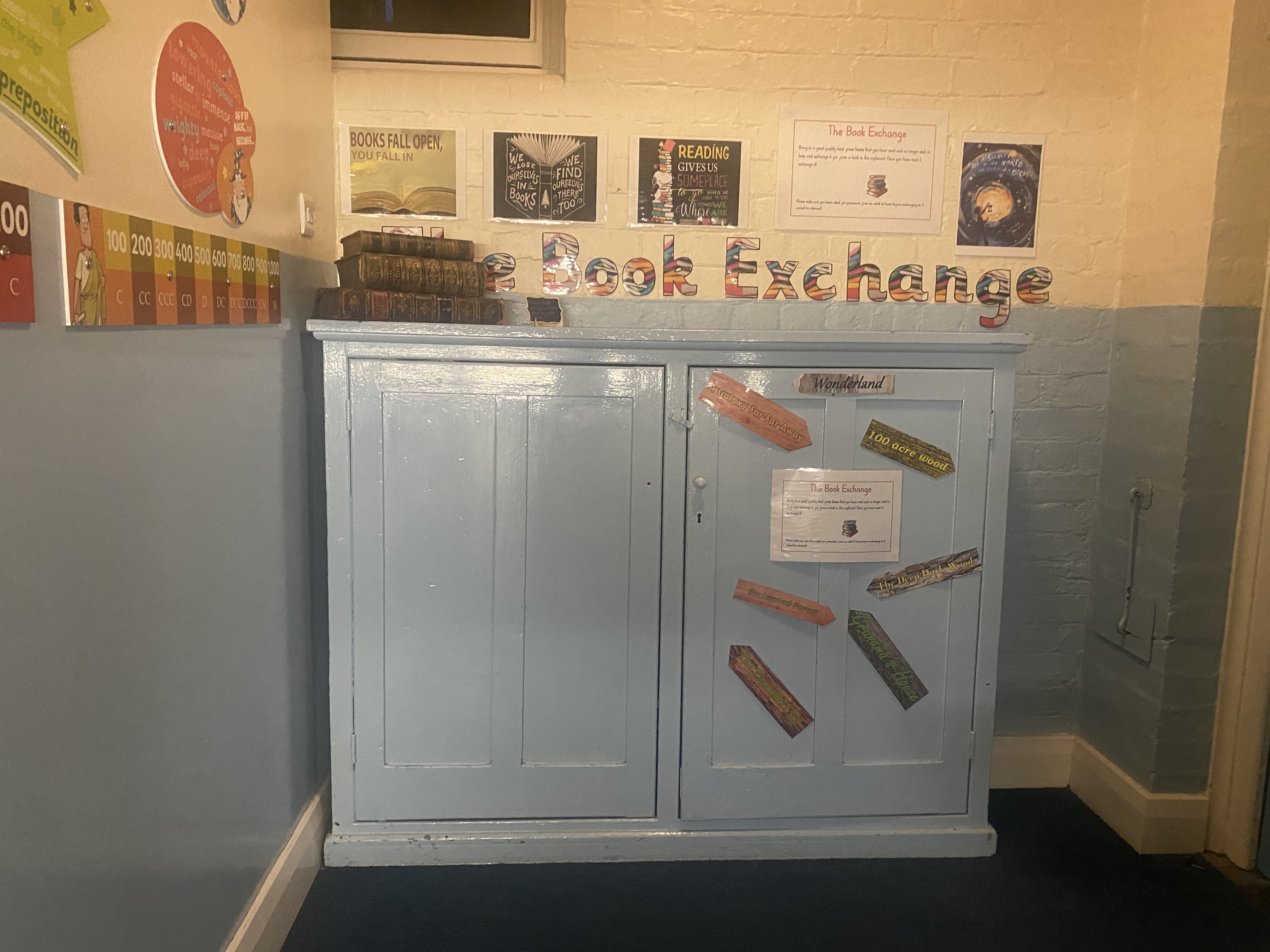
We use a wide variety of quality texts and resources to motivate and inspire our children. We also provide a wealth of enrichment opportunities within our curriculum to inspire creativity and give memorable experiences that they can draw on both in the short and long-term. Below are our Curriculum maps for English:
Writing Curriculum Files
Reading Curriculum Files
| Title | Download |
|---|---|
| Class Reader Books | Download |
| Writing Breadth Map | Download |
Phonics & Spelling
As a school we use the Sounds Write Approch (a DFE endorsed programme) to teach spelling and phonics and this is taught by staff who are fully trained to deliver this programme. Sounds-Write is an evidence-based, highly structured synthetic phonics programme. Synthetic phonics is a method of teaching reading that focuses on systematic phonemic awareness. It involves teaching children to pronounce the sounds associated with letters (phonemes) and then blending them to form complete words (synthesis). This approach starts with the simplest units of sound and builds up to blending these sounds to decode and read whole words. It emphasises the skills of segmenting words into their constituent sounds for spelling and blending sounds for reading rather than recognising whole words. Synthetic phonics is characterised by its structured teaching sequence and direct teaching of all significant sound-letter correspondences.
Initial Code teaching sequence:
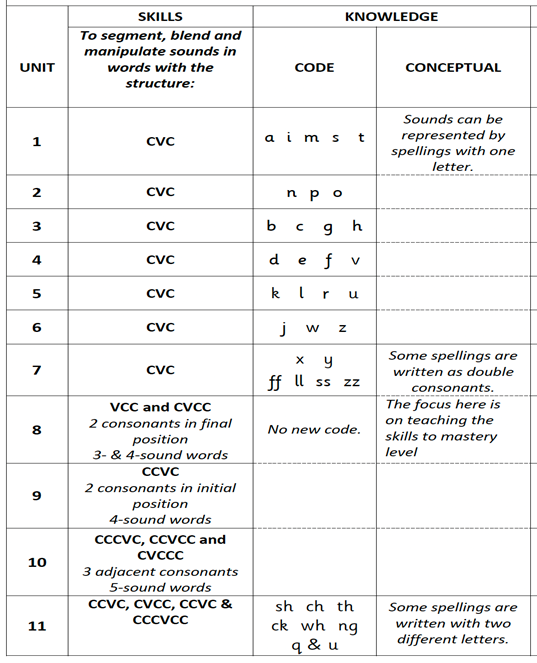
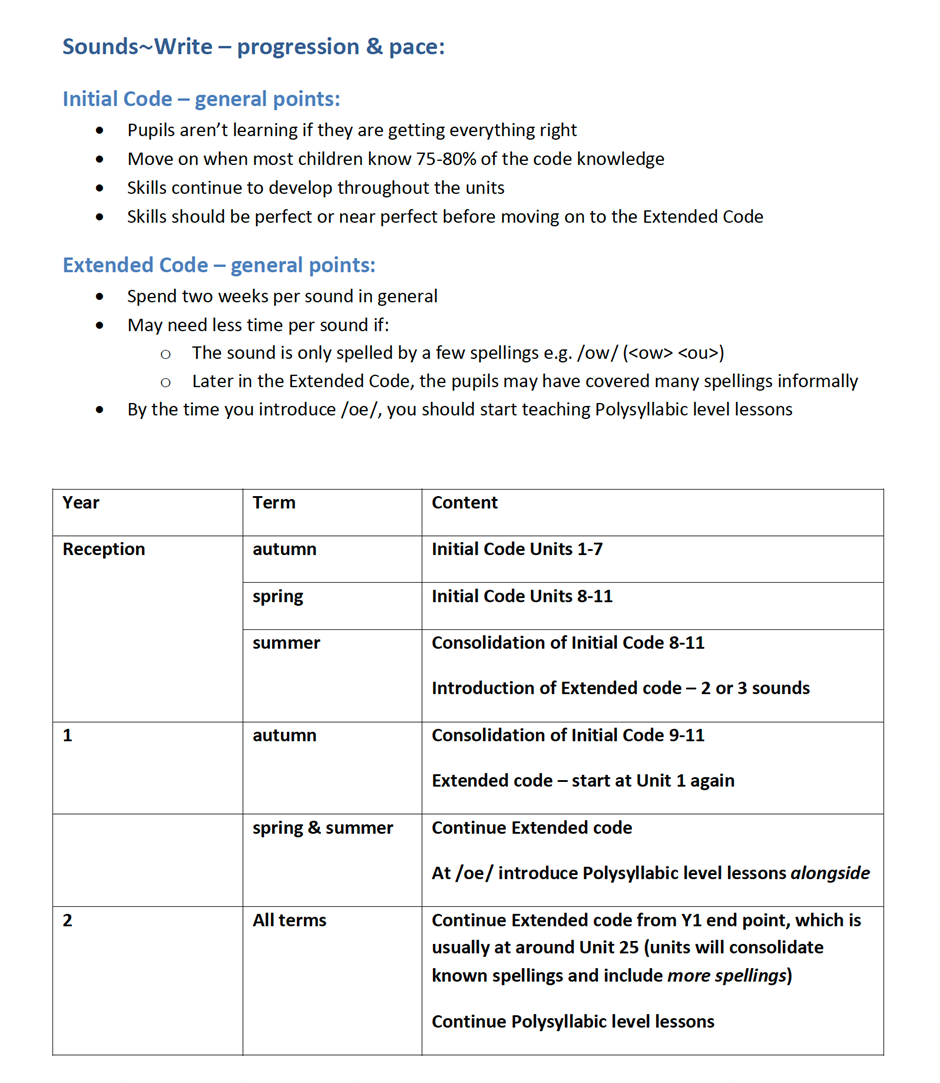
Phonics intervention is taught three times per week to those pupils who do not have a secure phonic knowledge.
In order to improve spelling, we have also bought into the PiXL vocabulary app and Spelling Shed. These provide children with online materials that can be accessed at home and resources for teachers that they can use to address key elements of the spelling curriculum. In addition, we provide children with access to dictionaries on their tables and iPads in every classroom, to help improve spelling accuracy.
Phonics Curriculum Files
| Title | Download |
|---|---|
| Grammar, Spelling & Punctuation Breadth Map | Download |
This page contains downloadable documents, please scroll down to reach them
We follow the National Curriculum Programme of Study for teaching History and use the 'History Lion Learning Pathways' scheme of work. The History Lion Learning Pathway follows a sequential approach and teaches History chronologically, so that, from Years 1 to 6, children have a clear framework for organising their understanding of the past. Our aim is to inspire children to think like Historians, to work with evidence, argue for their own conclusions, and learn to distinguish between historical facts and the way people interpret them. Above all, pupils get to understand more about themselves as individuals and as members of society.
Our aim is to bring History to life through providing first-hand, real-life opportunities for all children to experience, through school activities and beyond, to develop their imagination and curiosity. Directing their imagination and curiosity by giving children clues to piece together the events of the past; allowing them to make connections with their own experiences and between historical events and support them to make connections through time.
Each year, as Historians the children build upon their prior knowledge and understanding and become more skilled to:
- Demonstrate chronologically secure knowledge of History
- Establish clear narratives within and across periods studied
- Note connections, contrasts and trends over time using relvant evidence from different time periods studied
- Demonstrate appropriate use of historical terms including dates and period specific vocabulary
- Regularly address and sometimes devise historically valid questions
- Understand how the past is constructed from a range of sources
- Construct informed responses by selecting and organising relevant historical information.
Our intention is that when they leave in Year 6, they can talk confidently about periods they have studied, recalling key facts and dates, they understand where each piece fits into wider world history, can compare and contrast periods of time using subject-specific language and use evidence to support or dispute ideas and are curious to find out more about the past.
History Curriculum Files
This page contains downloadable documents, please scroll down to reach them
We teach the National Curriculum Programme of Study for Geography and use the 'Geography Lion Learning Pathways' Scheme of Work. The sequential Geography curriculum helps children gradually build their knowledge, skills and understanding. Along the way, they encounter different societies and cultures, and understand more about the nature of the environment and human habitats. They also learn about their responsibilities to protect our fragile local and global environments.
Our intention is to deliver a Geography curriculum which is inclusive, adaptive and meets the needs of all our children, enabling them to understand similarities, differences and gain knowledge of the wider community and the world around us. We will deliver the Geography curriculum through interactively engaging all the children, incorporating a mixture of practical visits/activities (where possible) and theoretical class-based learning. We aim to direct their imagination and curiosity by allowing them to question and make connections with their own experiences and between localities both known and unknown.
Each year, the children build upon their prior knowledge and understanding and become more skilled as a Geographer in:
- Locational Knowledge
- Place knowledge
- Human and Physical Geography
- Geographical Skills and Fieldwork
Our intention is that when they leave in Year 6, children will have developed a natural curiosity about the world; they can talk confidently about places they have studied, recalling key facts, they understand where each place is situated in the world and can use specific vocabulary to compare places around the world. Our aim is that by the time they leave us, they are well prepared to openly discuss and debate how we are all interconnected and interdependent with people and ecosystems throughout the world.
Geography Curriculum Files
This page contains downloadable documents, please scroll down to reach them
It is our intent for the Art curriculum for children to learn about great artists, the works they have created and to also understand how art has influenced the world we live in.
As Artists we learn to:
- Develop Ideas - by thinking about and understanding how ideas for art develop.
- Master techniques - by developing the skills needed to create artwork.
- Take Inspiration from the greats - by learning from the artistic process and techniques used by great artists throughout history.
Each year the children become more skilled, building upon their prior knowledge, and understanding. Our intention is that when they leave in Year 6, they are able to record their observations and use them to review and revisit ideas, and furthermore, improve their mastery of art and design techniques and know about great artists, architects and designers in history, as well as comment on artworks with a fluent grasp of visual language.
Art and Design Curriculum Files
This page contains downloadable documents, please scroll down to reach them
Our intention in Design Technology is to teach our children to become creative and innovative thinkers. With an ever-changing world, we aim to provide our pupils with the skills needed to create, design, and build a variety of technology-based products.
We follow the National Curriculum Programme of Study for DT and use the 'Design and Technology Lion Learning Pathway's as our scheme of work. Throughout the school, the pupils will have opportunities to explore products and raise questions related to design and purpose. They will be taught to select appropriate materials and use equipment safely. They will be encouraged to refine and redraft their ideas and become critical in their craftsmanship to meet the needs of design specifications. As part of their work with food, pupils should be taught how to cook and apply the principles of nutrition and healthy eating. Instilling a love of cooking in pupils will also open a door to one of the great expressions of human creativity. Learning how to cook is a crucial life skill that enables pupils to feed themselves and others affordably and well, now and in later life.
As Designers we learn to:
- Master practical skills - by developing the skills needed to make high quality products
- Design, make, evaluate, and improve - by understanding that design is a process
- Take inspiration from design throughout history - by appreciating how the design process has influenced things we use in everyday life
Throughout the school, the pupils will have opportunities to explore products and raise questions related to design and purpose. They will be taught to select appropriate materials and use equipment safely. They will be encouraged to refine and redraft their ideas and become critical in their craftsmanship to meet the needs of design specifications.
Design and Technology Curriculum Files

